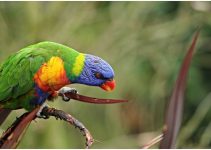Have you heard about vampire bats? They’re literally ‘vampires’ who suck blood from animals to survive, instead of eating fruits or insects like other bats do. Now, scientists recently discovered that vampire bats are social creatures who share a drink with their friends, but not with strangers! Cool, isn’t it?
Vampire Bats Drink with Their Friends
As crazy as it sounds, common vampire bats (scientific name Desmodus rotundus) are actually social animals who form bonds with their friends while drinking.
They go out at night to have a drink with their friends, finding their prey together. But others can go out alone, then simply share the drink back at their roost (a place where bats live), revealed a study published on the journal PLOS Biology, according to Science News.
Gerald Carter, an evolutionary biologist at Ohio State University in Columbus, and Simon Ripperger of the Museum für Naturkunde in Berlin teamed up for the study. They put tiny computer sensors at the backs of 50 female vampire bats from the same roost in Tolé, Panama.
With these sensors, they were able to monitor the bats’ movements and habits.

According to the researchers of this study, the bats don’t just sleep after a long day out but actually form groups that regularly bond together either during the hunt or afterwards. The groups aren’t necessarily composed of kin but can be non-kin as well.
During these “talks”, the bats were recorded regurgitating their food and sharing it with their friends. But they don’t appear to do the same thing to bats that don’t belong to their group.
Carter explained that they believe the vampire bats actually hunt alone. But when they encounter another bat feeding on one prey, such as a cow for example, they don’t fight it out. Instead, they just share the meal.
Though the bats are more likely to do this with a friend instead of a stranger bat. When that happens, the bat who got there second simply might simply off and find another prey.
What’s Regurgitation?
Regurgitation is the backward flow of something (usually food) instead of going forward as it is intended. Humans can experience involuntary regurgitation due to stomach upset or other conditions.
But there are many animals that can regurgitate anytime they want to – and that’s seen to help them bring food to their young for the family’s survival.





